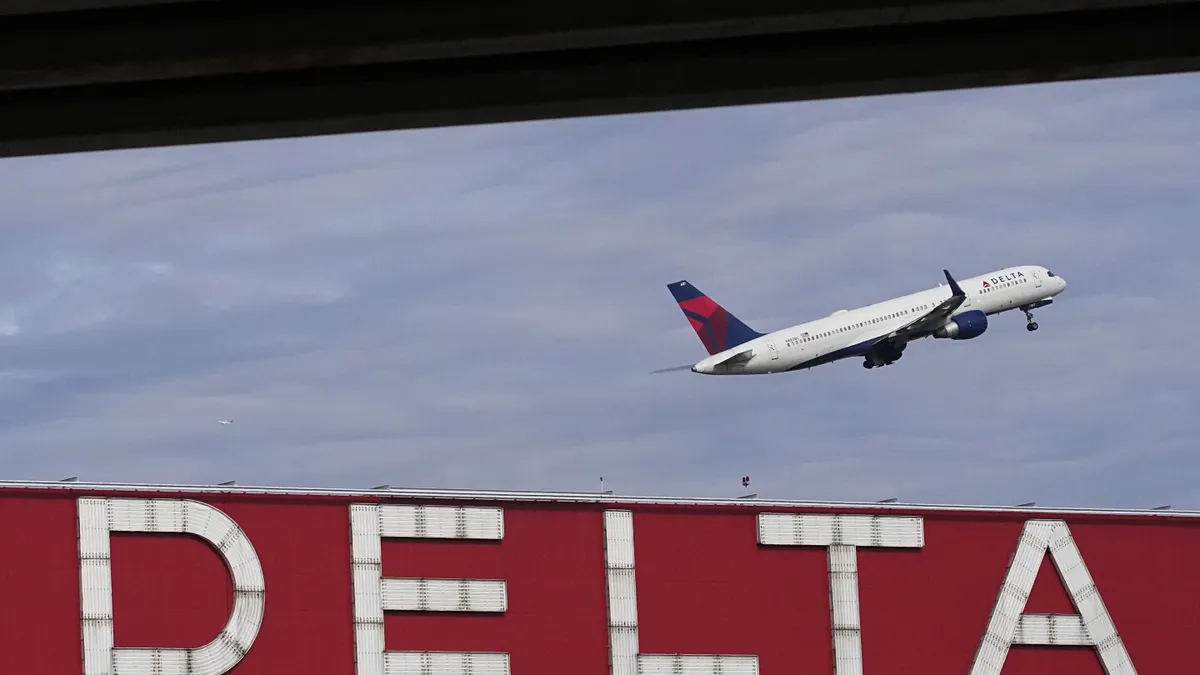
On Wednesday, Delta Air Lines announced that it has pulled its guidance for 2025, as the ongoing trade war is significantly impacting expectations for both business and household spending. This situation has led to a noticeable decline in bookings across the travel sector. CEO Ed Bastian expressed concern, stating, “With broad economic uncertainty around global trade, growth has largely stalled.” In response to this slower-growth environment, Delta is prioritizing the protection of its margins and cash flow by focusing on controllable factors. This includes reducing planned capacity growth in the latter half of the year to align with last year’s levels, while also actively managing costs and capital expenditures.
In the first quarter, Delta reported earnings of $240 million, translating to 37 cents per share. This marks a significant improvement from the $37 million, or 6 cents per share, earned in the same period last year. When excluding one-time costs and benefits, earnings rose to 46 cents per share, surpassing the 40 cents per share predicted by analysts surveyed by Zacks Investment Research. However, despite these positive figures, shares of Delta Air Lines Inc. faced a decline before the market opened, reflecting the broader struggles within the sector. The airline's stock has plummeted 41% this year, though it remains in a better position compared to its rivals, American Airlines and United Airlines.
Quarterly operating revenue saw an increase, climbing to $14.04 billion from $13.75 billion, thereby exceeding Wall Street’s estimate of $13.81 billion. Additionally, the average fuel price per gallon fell to $2.47 from $2.79, which could help the airline manage its operational costs more effectively.
Last month, Delta adjusted its first-quarter earnings and revenue outlook, citing a decline in consumer and corporate confidence due to escalating economic uncertainty. This shift has weakened domestic demand, prompting the airline to revise its expectations for first-quarter revenue growth down from an initial projection of 7% to 9%, to a more modest range of 3% to 4% compared to the previous year.
Earlier this year, Delta had reported fourth-quarter results that exceeded Wall Street’s profit and revenue estimates, benefiting from robust demand during the holiday season. However, conditions have worsened amid the escalating trade war, which has left both consumers and businesses hesitant to spend, particularly in the travel sector.
Looking ahead, Bastian indicated that Delta anticipates profitability in the June quarter to range between $1.5 billion and $2 billion, but the airline will not be updating its full-year outlook due to the prevailing economic ambiguity. Previously, Delta had projected earnings of over $7.35 per share and free cash flow exceeding $4 billion for 2025, driven by strong travel demand. However, this outlook has now been significantly altered.
Just a month ago, Bastian had expressed confidence in Delta’s guidance, asserting during the JPMorgan Industrial Conference that there were no signs of underlying issues within the company. “We anticipate margins continuing to expand and we think margins will expand this year, even with the slower start to the year,” he stated at that time. Yet, the uncertainty surrounding U.S. trade policy has since unsettled companies across various economic sectors.
For the second quarter, Delta is projecting earnings between $1.70 and $2.30 per share, with total revenue expected to fluctuate between a decline of 2% and an increase of 2%. Analysts surveyed by FactSet are predicting earnings of $2.21 per share. Delta President Glen Hauenstein remarked, “2025 is playing out differently than we expected at the start of the year. As a result, we are adapting to current conditions while staying true to our long-term strategy.”